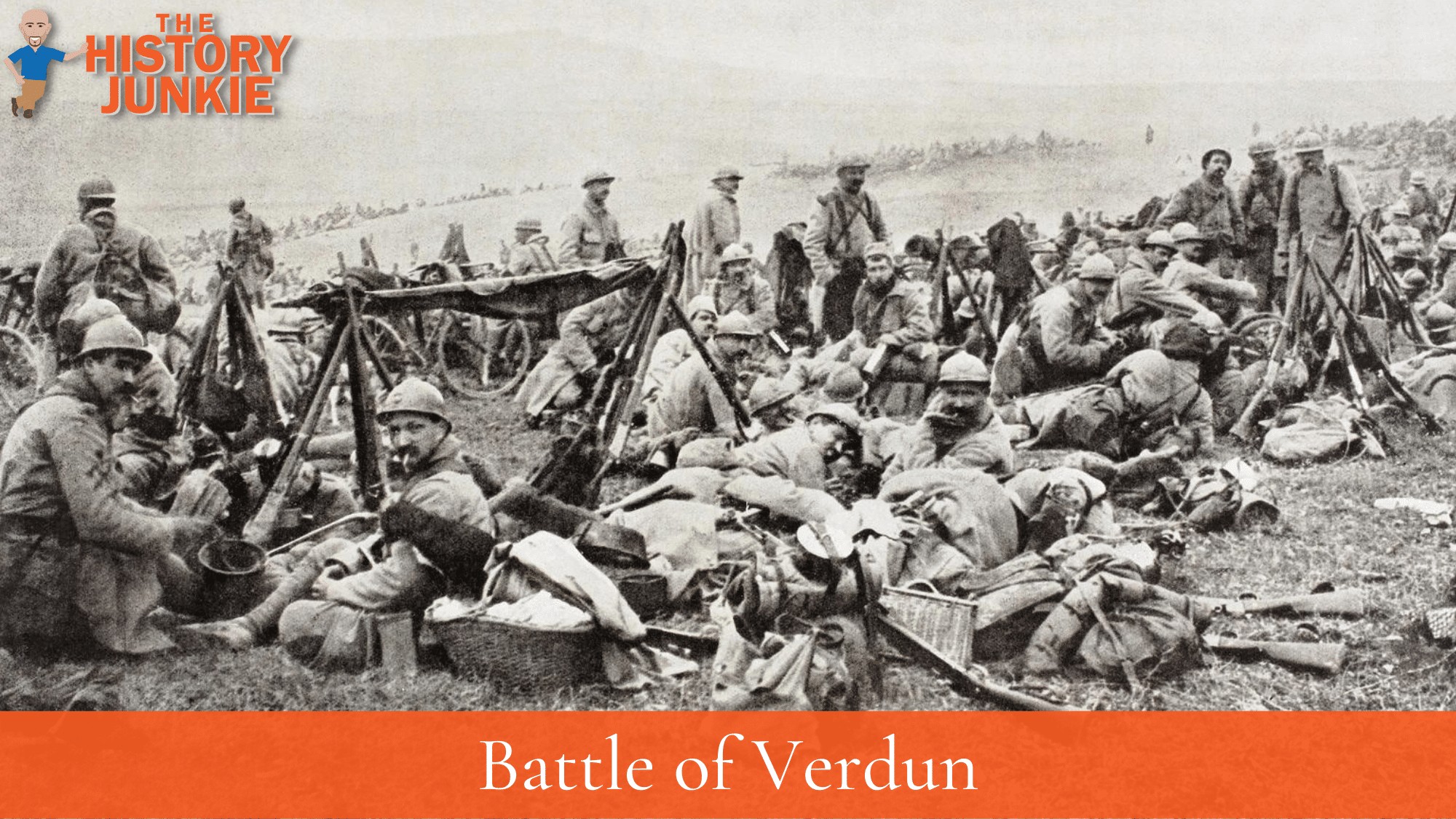The Battle of Verdun was a major battle of World War 1, fought between the French and German armies from February to December 1916. The battle was fought in the Meuse department of France, near the city of Verdun.

The battle was initiated by the German Army, who hoped to achieve a decisive victory over the French. The Germans launched a massive artillery bombardment of the French lines, followed by an infantry assault. The French defenders were initially overwhelmed, but they rallied and held their ground.
The battle raged for months, with neither side able to gain an advantage. The fighting was brutal and bloody, and both sides suffered heavy casualties. By the end of the battle, the French and German armies had lost a combined total of over 700,000 men.
The Battle of Verdun was a costly victory for the French, but it also proved to be a turning point in the war. The battle showed that the French army was still capable of fighting and winning, and it boosted French morale. The battle also led to the resignation of the German Chief of Staff, Erich von Falkenhayn.
Prelude to the Battle
The Battle of Verdun was preceded by a series of German offensives in the spring of 1916. These offensives were all unsuccessful, and they led to heavy German casualties. The German High Command was looking for a way to break the deadlock on the Western Front, and they believed that the Battle of Verdun would be the decisive victory they were looking for.
The Germans chose Verdun as the target of their offensive because it was a strategically important location. Verdun was a major fortress, and it was located on a key transportation route. The Germans also believed that the French would be reluctant to give up Verdun, which would make them fight harder to defend it.
The Battle
The Battle of Verdun began on February 21, 1916. The Germans unleashed a massive artillery bombardment on the French lines. The bombardment lasted for 10 hours, and it destroyed much of the French artillery and trenches.
After the bombardment, the German infantry attacked. The French defenders were initially overwhelmed, but they rallied and held their ground. The fighting was brutal and bloody, and neither side was able to gain an advantage.
The battle raged for months, with neither side able to break through the other's lines. The fighting was so intense that the area around Verdun became known as the "Meuse Slaughterhouse."
By the end of the battle, the French and German armies had lost a combined total of over 700,000 men. The French had lost over 350,000 men, and the Germans had lost over 350,000 men.
The Aftermath
The Battle of Verdun was a costly victory for the French, but it also proved to be a turning point in the war. The battle showed that the French army was still capable of fighting and winning, and it boosted French morale.
The battle also led to the resignation of the German Chief of Staff, Erich von Falkenhayn.
The Battle of Verdun was a major turning point in World War 1. It showed that the war of attrition was not working and that the Allies were still capable of fighting and winning.
The battle also led to the development of new weapons and tactics, which would help the Allies to achieve victory in the war.
